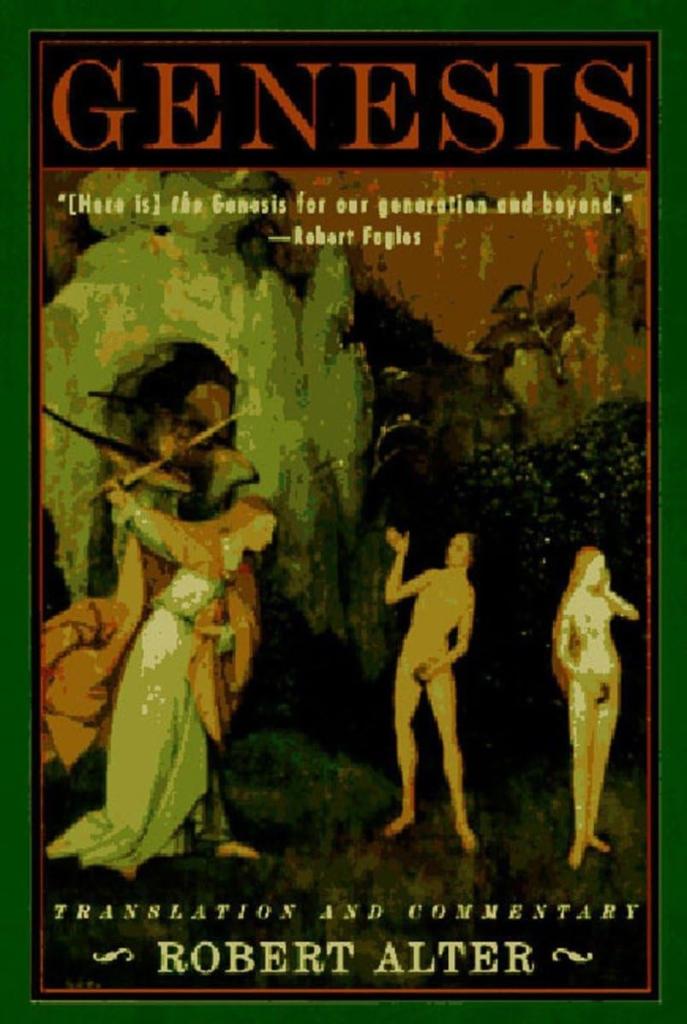Just when you thought Abraham and Sarah could live happily ever after, Gen. 22 shows up, and as the very first verse indicates, after all that had gone before, God decided to test Abraham. Lest you think he won’t do this to you at some point in your spiritual pilgrimage, read this story carefully. A test is different from a temptation, though in Greek the word ‘pirasmos’ can mean either test or temptation. While God will not tempt you or allow you to be tempted past your power to endure, God absolutely will test you. This is why we pray ‘do not put us to the test, but deliver us from the evil one’ in the Lord’s prayer. The function of a test is to try and strengthen someone’s faith and character, whereas the function of a temptation is to destroy one’s character and faith. The story of Abraham shows however that the test can indeed stretch one to the limits of what one can endure, and force one to trust God, even when things look bleak.
Jews call the story in Gen. 22 ‘the akedah’ the binding, referring to what was done to Isaac, but it is Abraham who is in a different sort of bind. What are you prepared to give, or give up in order to do God’s will? Inquiring minds want to know.
God calls him, and Abraham says ‘Here I am’ not suspecting what would come next— the power of the words in Hebrew which build to a climax are not so easily conveyed in English–‘take pray your son, your only one, the one you love, Isaac and offer him up as a burnt offering in the land of Moriah on one of the mountains I will indicate to you’. Obviously, anyone who heard this might start bargaining with God, and indeed Rashi, the famous Jewish commentator expands the text in a midrash to read as follows (as Alter notes)–‘take your son’ God said, but Abraham replied ‘I have two sons’, Take your only son’ but Abraham replied ‘Well this one is the only one to this mother, and this one is the only one to that mother’, and God said ‘the one you love’ and Abraham said ‘I love them both’. Then God said ‘ISAAC!’ But in the story in Genesis, Abraham offers no quibbles or rebuttals, Note that the theme, ‘your son, your only one’ will return at the end of the story.
Early the next morning, Abraham saddled up a donkey, chopped wood for the offering took Isaac and two servant boys with him, and headed out to the land of Moriah, But where pray tell is Mt. Moriah? According to the later tradition found in 2 Chron. 3.1– Mt. Moriah is where Solomon built the temple in Jerusalem. But in the Samaritan Pentateuch it is rendered as Morrah, said to be a location near Nablus and associated with Mt. Gerizim. Furthermore, in the Koran it is rendered as ‘Marwa’ which is close to the Kaaba in Mecca. The problem with 2 Chron. 3.1 is Moriah is spelled a bit differently than in Gen. 22. And then there are some scholars who think that the reference is to the land of the Amorites, with the initial aleph being suppressed. I suspect 2 Chron. 3.1 got it right, in which case the poem I wrote comparing the binding of Isaac to the bind Christ was in on the cross is apt. Only Christ actually ends up sacrificed. When they draw near to Moriah, Abraham says to the lads, stay here with the donkey, and he puts the wood on Isaac and indicates he and Isaac are going up the mountain to perform an act of worship. Abraham takes the fire and the butcher knife with him. When Isaac asks here’s the wood and the fire but where is the lamb, Abraham provides ‘God will see to the sheep for the offering my son’. Notice Isaac doesn’t mention the knife, the one thing that might scare the boy, and notice that Abraham doesn’t allow his son to carry the dangerous things– the fire and the knife. The eternal question is– Is Abraham really confident of this, or is he just hoping against hope God will do something at the last minute?
And as the story is told, it must genuinely the very last minute that divine intervention happens because they reach the spot, Abraham ties Isaac to the wood, he lifts the knife to kill Isaac…… and then , and only then he hears the divine messenger call his name– Abraham! and he replies ‘Here I am’ And the messenger orders ‘do not reach out your hand against the boy, and do nothing to him for now I know you genuinely fear God and you have not held back your son, your only one, from Me.’ And at that very moment Abraham looked up and saw a ram caught in a nearby thicket by his horns, and Abraham went, grabbed the ram and offered him up as a burnt offering instead of Isaac. And Abraham called that spot YHWH-yireh ‘as is said to this day’ ‘On the mount of the Lord there is sight’.
Again the divine messenger or God himself calls out to Abraham and says “By my own self, I swear (because of course there is no higher being by which God could swear), …that because you’ve done this and you did not hold back your only son I will greatly bless you, and multiply your seed as the stars in the heavens ‘and your seed will take hold of your enemies gate, and all the nations of the earth will be blessed through your seed, because you have listened to my voice.’ Abraham then returns to Beersheba with Isaac and the servants and he dwelt there. This is the climax of the Abraham Saga, but not the end. The genealogical note at the end of the chapter is there to introduce us to Rebekah, and what is left is the story of Abraham finding a suitable burial place for Sarah who predeceases him. Again we must bear in mind Abraham is a nomad, and so he doesn’t automatically have an appropriate burial place for Sarah.
—–
AKEDAH
Did he ponder Isaac
Whilst hanging on the cross
A last second substitution
Just before all was lost?
Is this why he cried out
‘My God, My God’ so loud
Showing disappointment
Before a hostile crowd?
Where’s God’s intervention,
Offering another lamb
Or would He be passed over
A dangling great I AM?
Abandoned but begotten
Left to face his fate?
Would help arrive in ‘nick of time’
Or would it come too late?
Where’s the lamb, asked Isaac
And told ‘God will provide’
But Jesus died in plain sight
No place for grace to hide.
Jesus, like old Isaac
An only begotten son,
Isaac was no substitute
But Jesus was the one.
We like sheep have gone astray
Unblemished lambs we’re not
God led the One to slaughter
The Passover he’d begot.
Offering isn’t ‘finished’
Until the sacrifice
For any true atonement
Blood shed must suffice.
Behold the Lamb of God
Who takes away our sin
God accepts no substitutes
For Jesus, in the end.














